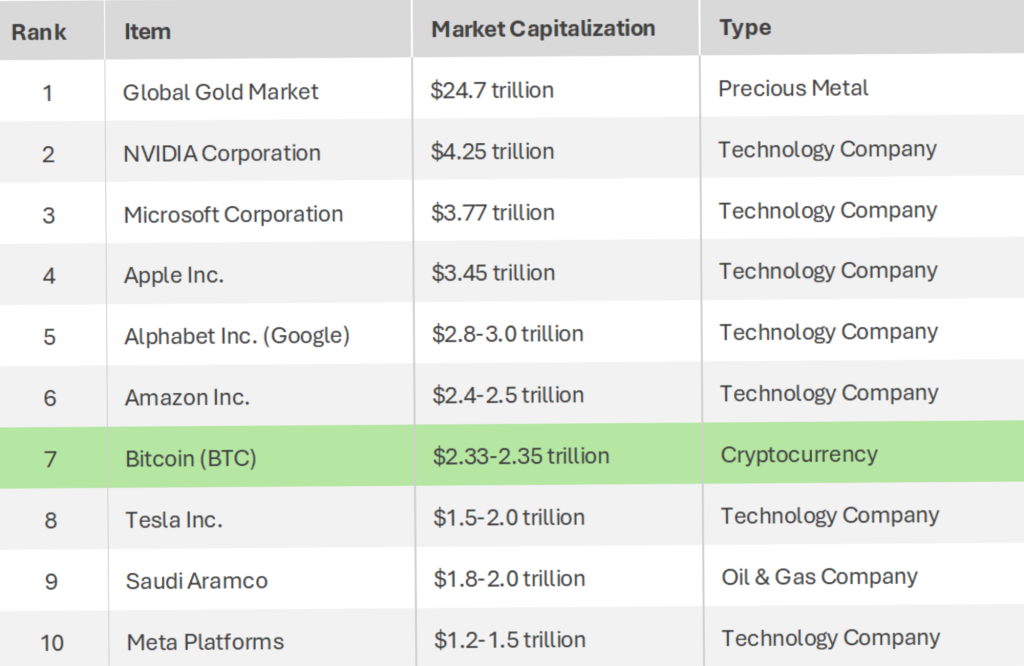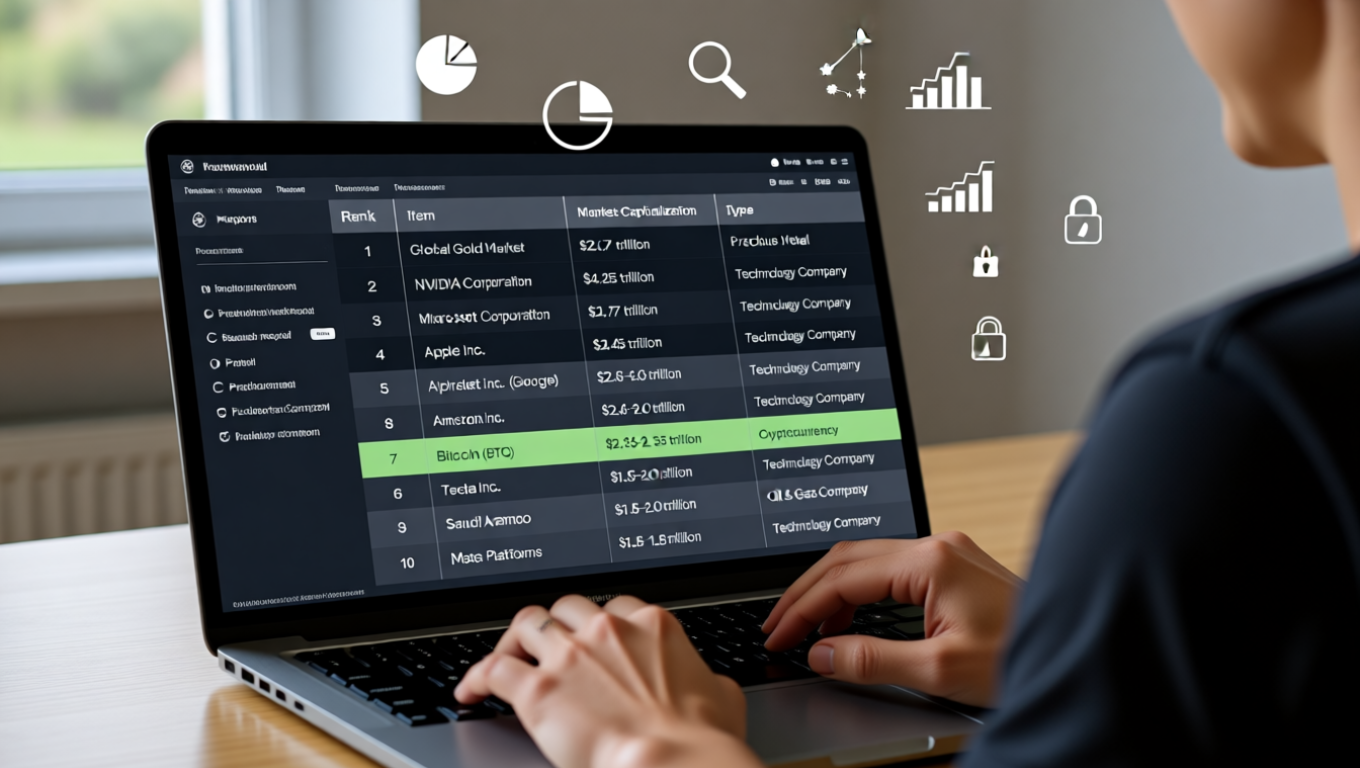Can you believe it? Bitcoin is the 7th most valuable asset in the world!
The September 2025 ranking of the world’s most valuable assets reveals a fascinating landscape dominated by traditional stores of value and cutting-edge technology companies. The list spans from the ancient store of value (gold) to revolutionary digital assets (Bitcoin) and the world’s most innovative corporations.

Key Conclusions
1. Gold’s Enduring Supremacy
Gold maintains its position as the world’s ultimate store of value at $24.7 trillion – nearly 6 times larger than the next largest asset. This validates gold’s millennia-old role as humanity’s preferred wealth preservation mechanism, even in our digital age.
2. Technology Sector Dominance
Technology companies occupy seven of the ten spots, demonstrating how the digital revolution has created unprecedented wealth concentration in tech. This shift represents one of the most significant economic transformations in modern history.
3. AI Revolution Leadership
NVIDIA’s rise to the #2 position at $4.25 trillion, surpassing traditional giants like Apple and Microsoft, illustrates how artificial intelligence has become the defining technology trend of our era. This represents a seismic shift in corporate valuations.
4. Bitcoin’s Historic Achievement
At #7 with over $2.33 trillion in market capitalization, Bitcoin has achieved a remarkable validation of the cryptocurrency revolution. From essentially zero value in 2009 to becoming one of the world’s top 10 most valuable assets demonstrates the transformative power of blockchain technology.
5. Individual Wealth Concentration
Notably absent from this list are individual fortunes – even Elon Musk’s ~$400+ billion net worth falls short of the trillion-dollar threshold required to make this ranking, highlighting the massive scale of these market capitalizations.
Key Takeaways
For Investors Over 50:
- Diversification Remains King: The list shows that value creation happens across different asset classes – from traditional stores of value (gold) to revolutionary technologies (Bitcoin) to established corporations.
- Technology’s Transformative Power: As noted in my Bitcoin & Beyond Book, understanding these technological shifts is crucial for making informed financial decisions, even if you choose not to participate directly.
- Bitcoin’s Legitimacy: Bitcoin’s presence at #7 validates the our cryptocurrency discussion – it’s no longer a fringe asset but has achieved institutional-scale market capitalization.
- The “1-5% Rule” Context: As always the recommendation to limit cryptocurrency to 1-5% of a portfolio makes sense when you see Bitcoin’s $2.33 trillion market cap – it’s substantial enough to matter but volatile enough to warrant caution.
Strategic Implications:
- Traditional vs. Digital Assets: The coexistence of gold ($24.7T) and Bitcoin ($2.33T) in the top 10 shows both traditional and digital stores of value have found their place in the modern economy.
- Innovation Premium: Companies at the forefront of transformative technologies (AI, electric vehicles, digital platforms) command premium valuations, reflecting investor confidence in future growth.
- Global Economic Shifts: The dominance of U.S. technology companies, alongside traditional energy (Saudi Aramco) and precious metals (gold), illustrates the complex, interconnected nature of the global economy.
Practical Application:
As the Bitcoin & Beyond Book, emphasizes: “Start small, prioritize security, keep learning, and never invest more than you can afford to lose.” This ranking provides context for why Bitcoin deserves consideration in modern portfolios while reinforcing the importance of balanced, diversified investment approaches.
The data confirms that we’re living through a period of unprecedented wealth creation and technological transformation, where understanding both traditional and emerging asset classes is essential for informed financial decision-making.







Leave a Reply